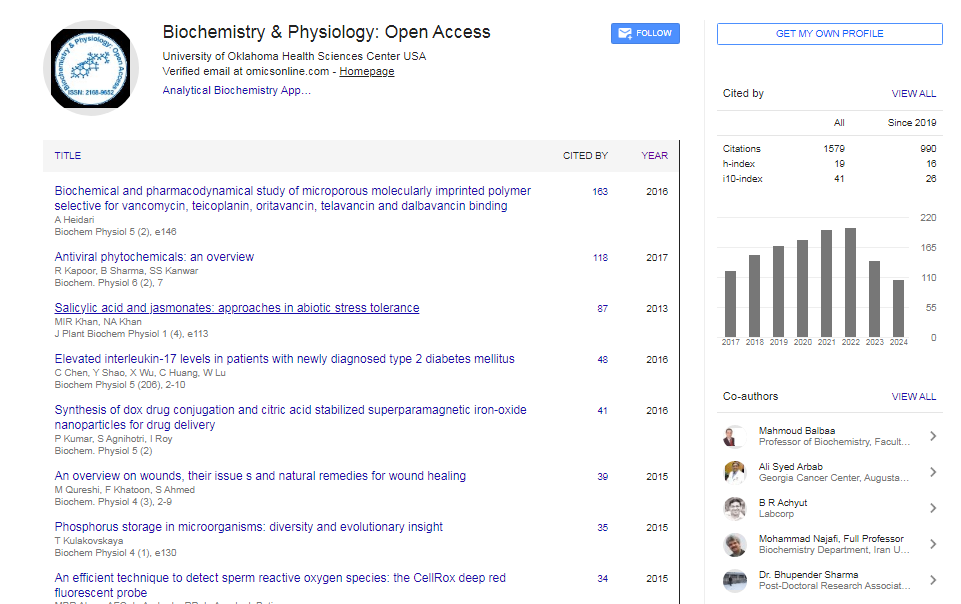Research Article
Epitopes Identification for Vaccine Design and Structural Aspects of Dengue Virus 3 Envelope Protein
| Arun G Ingale* | |
| Department of Biotechnology, School of Life Sciences, North Maharashtra University, Jalgaon, India | |
| *Corresponding Author : | Arun G Ingale Department of Biotechnology School of Life Sciences, North Maharashtra University Umavi Nagar, PB-80, Jalgaon (Maharashtra), India Tel: +91-0257-2257423 Fax: +91-0257-2257406 E-mail: agibiotech@gmail.com |
| Received May 19, 2014; Accepted May 28, 2014; Published June 04, 2014 | |
| Citation: Ingale AG (2014) Epitopes Identification for Vaccine Design and Structural Aspects of Dengue Virus 3 Envelope Protein. Biochem Physiol 3:134. doi:10.4172/2168-9652.1000134 | |
| Copyright: © 2014 Ingale AG. This is an open-access article distributed under the terms of the Creative Commons Attribution License, which permits unrestricted use, distribution, and reproduction in any medium, provided the original author and source are credited. | |
Abstract
Dengue is one of the most imperative emerging vector-borne viral diseases. A foremost hitch in designing vaccine for the dengue virus has been the high antigenic variability in the envelope protein of different virus strains. To foster operational vaccines it is essential to target multiple antigenic components of the virus, thus focusing the immune system to protect the host from the virus. Consequently, it is essential to study the structural and functional features of this DENV3 envelope protein in the stoppage of the disease. The purpose of this study was in silico structural characterization of DENV3 envelope protein and to predict their antigenic determinants. This endeavor represents the first structural and epitopes prediction study of DENV3 envelope protein of Indian origin. Computational analyses were performed and a homology model of DENV3 envelope protein was generated. The quality of the model was evaluated by PROCHECK, VERRIFY-3D, PROSA and Errat. Results indicate that 89.88% overall quality of predicted model with a -4.67 Z-score. The model structure was finally submitted in Protein Model Database. The results of MetaPocket server predicted the binding sites, which are good and helpful for docking purpose. The analysis revealed trustworthy conformational B-cell and CTL epitopes that can promote the desired immune response against dengue virus. This information may also help in designing vaccine against dengue in deficiency of experimentally resolved structures.

 Spanish
Spanish  Chinese
Chinese  Russian
Russian  German
German  French
French  Japanese
Japanese  Portuguese
Portuguese  Hindi
Hindi 